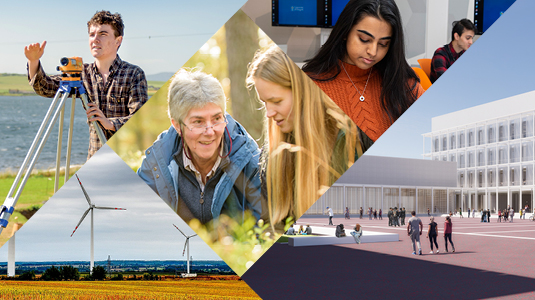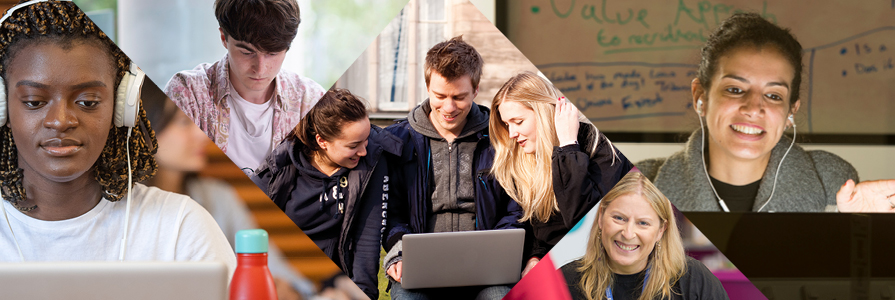SFC news published since 2018. See SFC archived content for earlier news articles.
Rebecca Petford from EAUC Scotland attended last year’s Climate Change Conference and reflects here on her thoughts and experiences on its impact on Scotland’s tertiary education sector.
Since learning about the Conference of the Parties (COP) climate process as part of my undergraduate degree I have been desperate to attend. When it became clear that not only was the event going to be in Scotland but that EAUC was intending to send observers, I was delighted! Looking back now, it is clear that having COP in Scotland has impacted our work at EAUC-Scotland far beyond my personal experiences in the negotiation space.
Our “Preparing for COP26” engagement started in winter 2019 (when COP26 was going to take place in 2020!), and continued all the way through to COP itself in November 2021. Our aspiration was that each university or college would be able to mark the event in ways most appropriate for its own situation and community, through public communications, events, workshops, or by including sustainability in its curricular activities.
 The buzz in the run up to the conference was great and we had wide engagement, although it was clear that, due to the challenges of Covid-19 restrictions, institutions struggled to confirm their plans.
The buzz in the run up to the conference was great and we had wide engagement, although it was clear that, due to the challenges of Covid-19 restrictions, institutions struggled to confirm their plans.
EAUC also promoted the Race to Zero campaign for universities and colleges. Powered by the UN Environment Programme, EAUC & Second Nature, Race to Zero is a global campaign to rally leadership and action in the education sector. The campaign and the university and college signatories are recognised annually at the UN High Level Political Forum, taking Scotland’s sector leadership to a global audience.
We set a target to get as many Scottish universities and colleges as possible signing up to the commitment before COP26. As of early 2022, 70% of Scottish institutions have signed up to the Race to Zero and have either published or are working on their strategies. The percentage of signatories for the rest of the UK is around 25%. We are very proud of the leadership shown by the FHE sector in Scotland!
The COP26 fortnight itself was a bit of blur. There were events, meetings and visits to country and organisation stands within the SEC, plus events and displays in the Science Centre – and events and meetings elsewhere in Glasgow and beyond. There were too many interesting events to attend them all, too many people I wanted to talk to and learn from. It wasn’t just the negotiators who ended up exhausted!
Much has been written about the outcomes of COP26, and about people’s experiences of the event itself. Like the rest of the EAUC delegation, I was disappointed that many of the key sessions were only available to one representative from each constituency, so we were not able to experience the full extent of a COP event as an observer. However, EAUC and its partners made sure that education and youth voices were heard as often as possible.
Specifically, I was delighted to attend the joint Ministers of Education and Environment Summit, a first for COP. It is great that education has finally been recognised as critical in our efforts to minimise climate change impacts and awareness at all levels.
However, the biggest impact COP26 has had on our work to support sustainability in universities and colleges has been in terms of raising awareness, and increasing aspiration. Numerous institutions launched new strategies or held strategy-engagement workshops around the COP fortnight, and many more launched fantastic new carbon reduction projects.
The Scottish Government also released its new Public Sector Leadership on the Global Climate Emergency Guidance, which our team actively helped to develop. This has stimulated conversations for us at all levels of Scotland’s universities and colleges – and internationally. Interest in participating in our Carbon Literacy Training has more than quadrupled. Senior academic staff now want to talk to me about embedding sustainability and climate change in the curriculum. Other organisations working in tertiary education want to partner with us on sustainability projects or have us talk to their members. The list could go on.
I and the rest of the EAUC-Scotland team are busier than ever following the boost to sustainability and climate change that COP26 provided – and we wouldn’t want it any other way!
For more information about the work of EAUC Scotland see www.eauc.org.uk/scotland.


